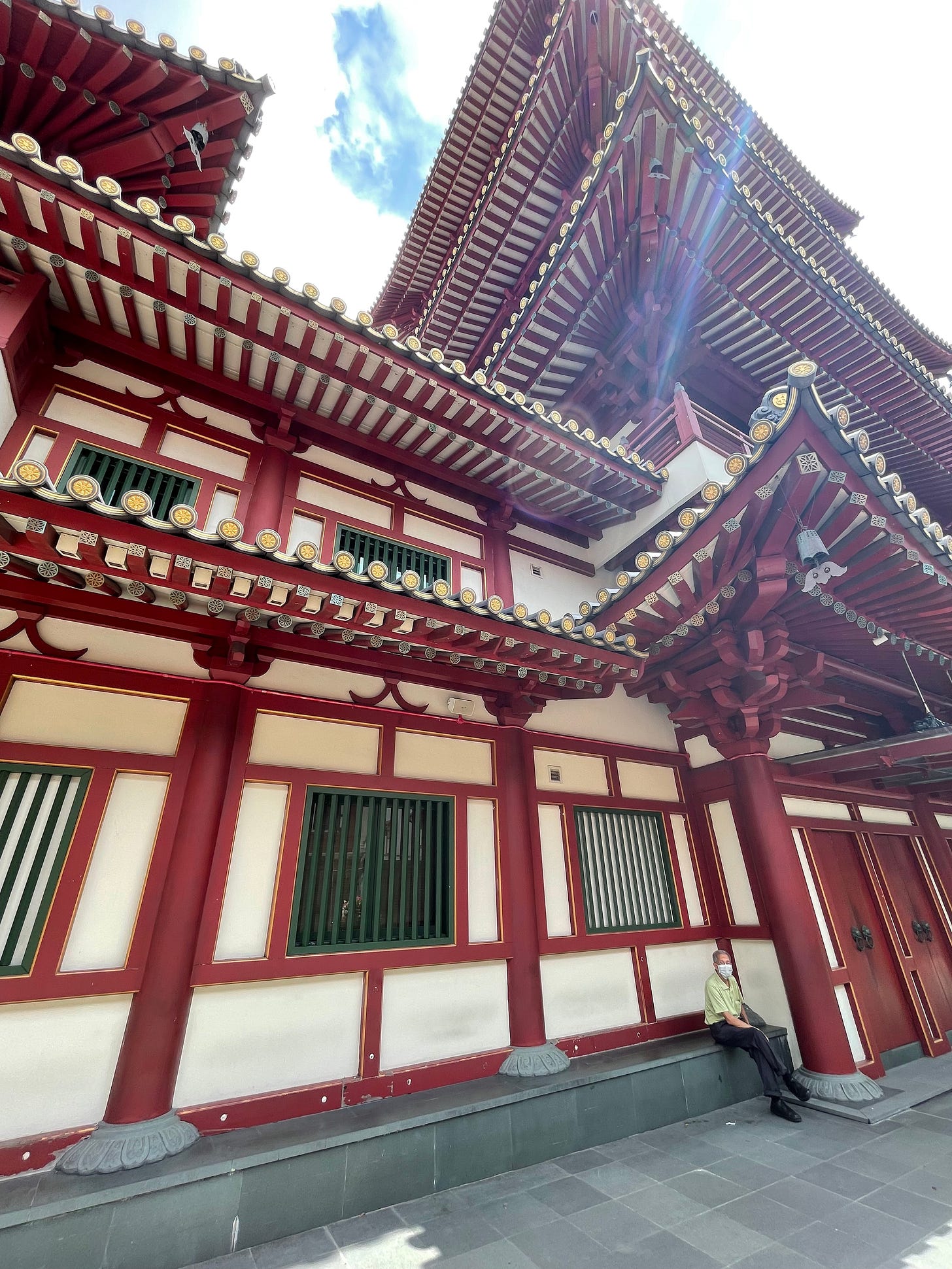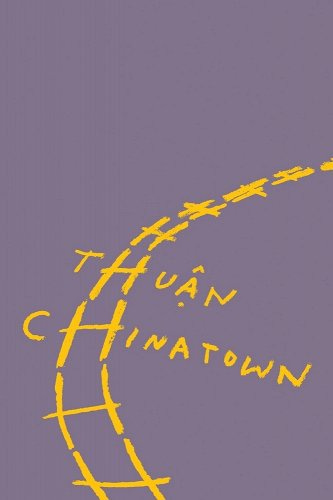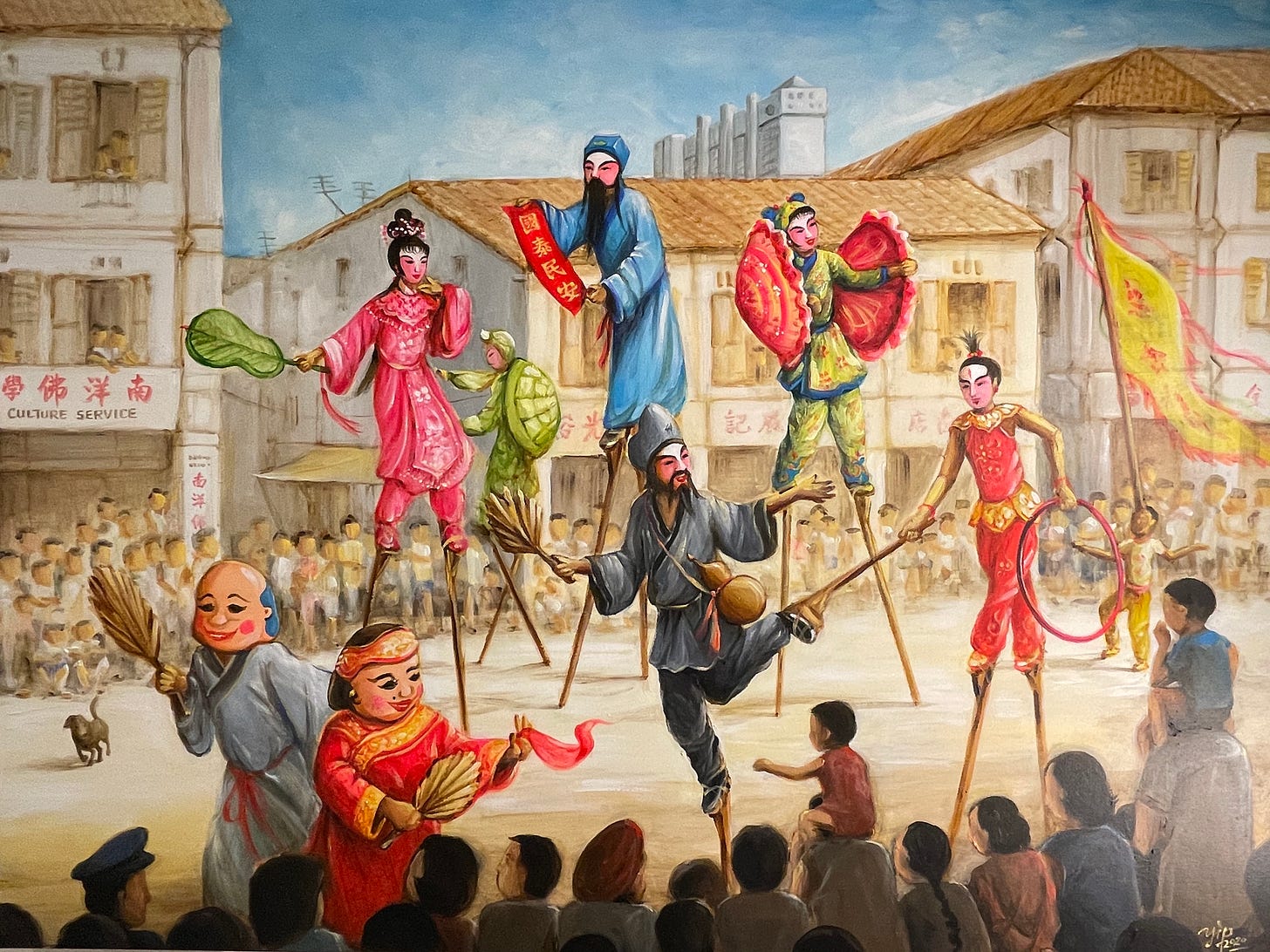FROM VIETNAM INTO CHINATOWN
This strange ride through Vietnam, Russia and the world's many Chinatowns happens inside a metro in Paris and it deals with the repercussions of trying to belong in someone else's country.

Over the years I’ve strolled through many Chinatowns. The oldest and largest Chinatown outside of Asia in North America—in San Francisco—grew out of the Californian Gold Rush and the building of the Transcontinental Railroad. The oldest Chinatown in Europe—in Liverpool, England—was established in the early 19th century when Liverpool began importing cotton and silk from Shanghai. For immigrants from China, these offered a sense of community. In Singapore, its Chinatown is a gastronomic paradise, the food stalls teeming with people late into the night. From the rows of durian stalls to stores peddling chopsticks, to the huddled masses playing mahjong in the back alleys, Singapore’s Chinatown is comforting, even for Indian vegetarians like me who flinch when we walk past vendors selling fish ball noodle soup.
Despite my vegetarian otherness and uniqueness, I feel a oneness with my compadres from China in these old immigrant quarters. Every Chinatown or Little India around the world is a monument to the truth that no matter how much an outsider tries to belong somewhere, a complete oneness with the place will always elude him. This is one of the refrains of Chinatown by Thuận published by New Directions in 2022.
Translated from the Vietnamese by Nguyễn An Lý, Chinatown is a rant articulated brilliantly on the page. It feels like an endless ride but it’s expressed with such fluidity and grace in English that I knew I would finish it even as I turned over the first page.
Throughout the monologue we’re inside the head of the protagonist during the hours she and her 12-year-old son, Vinh, are stuck in a compartment in the Paris metro. There has just been a bomb scare. and no one quite knows what is going to happen.
The Vietnamese woman reflects on her life while her son is asleep on her shoulder. We discover that she has disappointed her parents in Hanoi, their neighbors and the entire community. She once used to be a brilliant student whose report cards all the way through school proclaimed that she would have a wonderful future. We learn about her constrained childhood in communist Hanoi and about her five successful years in university in Leningrad during the Gorbachev period. In the Parisian suburbs where she now teaches English to “problem” kids, she’s ineffectual and pallid and cannot last in a school for more than a year.
Thuan’s novella is packed with quandaries that will never be resolved. Born and raised for the first seventeen years in Hanoi, the woman falls in love with Thuy, a Chinese-Vietnamese who is pilloried at school even as Sino-Vietnamese relations sour. Her passion for Thuy—whom she marries upon her return from Russia—colors the rest of her life. But how does one stay married to a man who continues to be irrelevant in the country of his birth? How does marrying a “Beijing goon” skew his wife’s life and those of her parents? It doesn’t matter that this Chinese man is born and raised in Vietnam. He’s still the “other”.
“My mother was ill. Had been ill for half a year. Ever since the day I announced my first decision to marry Thuy. My father didn’t touch his food. Didn’t touch his food for a whole week. He’d always been thin but now he was bony. The house was like a house in mourning. I didn’t dare look at my mother. I didn’t dare look at my father. We didn’t dare look at one another.”
Over the course of the book, the woman recalls falling in love with Thụy when they were teenagers in the 1970s and during the war. Everything that happens in the novel is exactly as expected and worse. It’s clear that the woman and Thuy love each other but are aware that nothing will change in their lifetime. One more thing is clearer still. Given their oppression while they were growing up, they both lack the agency to take charge and run away and find happiness in a future together. When presented with choices, they are unable to make them. When Thụy leaves her and their baby, the woman emigrates to Paris with Vinh and works as an English teacher, eventually meeting another man whom she identifies only as “the guy.”
Chinatown was published in 2004 but it is relevant even here in the Bay Area where success is defined in identical terms. The characters in the story are constantly preoccupied with the idea of “F” or a “future” in which success is defined as a state of being. Happiness and fulfillment are never mentioned as part of the discussion. It also questions everyday prejudice between common people, the kind that does not get spelt out in identity cards and visa stamps.
“The party congress has decreed that Beijing is enemy number one of the Vietnamese people. Student Au Phuong Thuy should be watched closely. The headmaster summoned my parents. The homeroom teacher wanted a private word with me. The math teacher wanted a private word with me.”
In a cover blurb to Chinatown, author Viet Thanh Nguyen’s says that he was “completely immersed in this spellbinding novel”. I was stupefied. For me, a book is a transfer of ideas from author to reader and for this communication to be effective, there must also be significant pauses built into the work. Chinatown has, literally, none. Past bleeds into present and vice versa. Imagination taints reality. Perhaps another read will help address some of my questions. The author makes it clear in this interview for Asymptote Journal that she expects her reader to be familiar with literary references she might make. Moreover, the novel expects its readers to be familiar with the culture and I’ve no doubt that this took away from my reading experience.
A Kirkus review says that Chinatown is “an ambitious experimental novel that succeeds in form and subject but is sometimes tedious to read.” Reading the stream of consciousness didn’t just feel tedious. I felt a little cheated by the time I reached the last page.





Thanks for introducing a book with cultural reality and historical background. I will think and try to learn more whenever I will visit Chinatowns around the world. A great write up!
I echo Peter’s comments! Your newsletter is a great way to learn about books I don’t have time to read. Look forward to more.